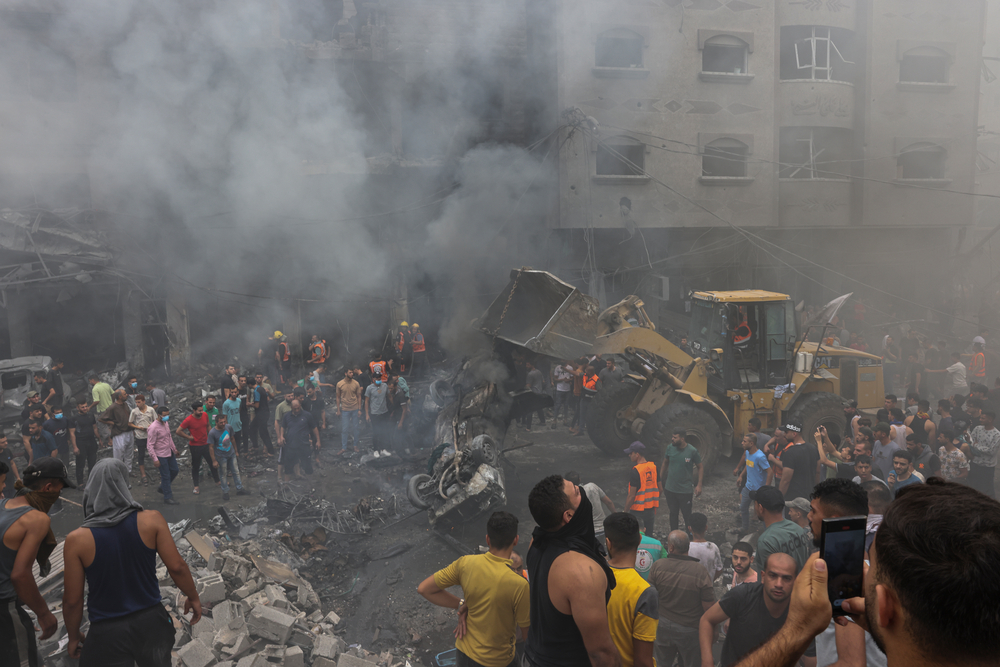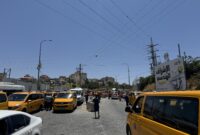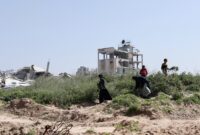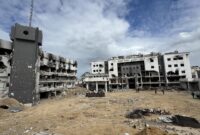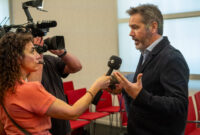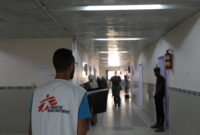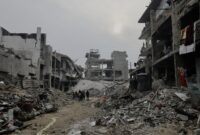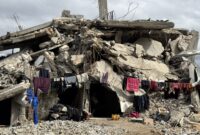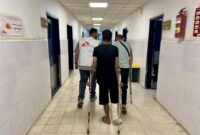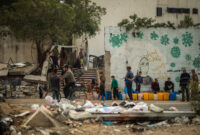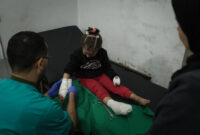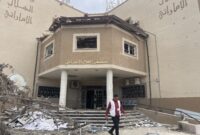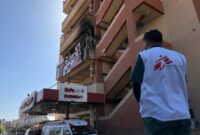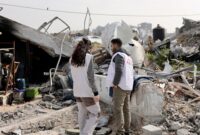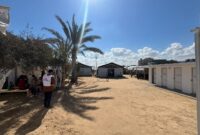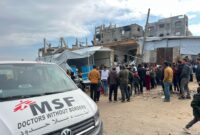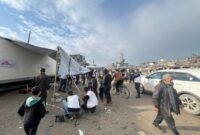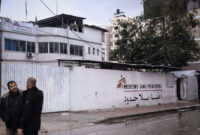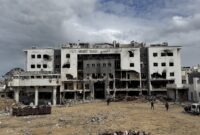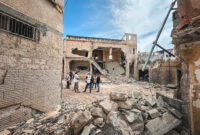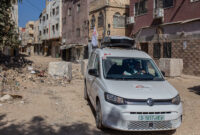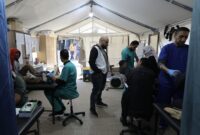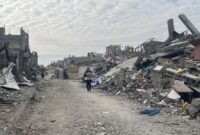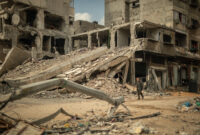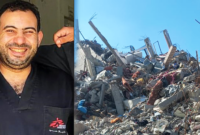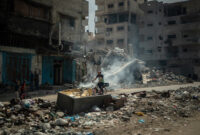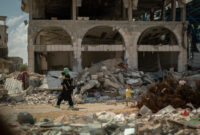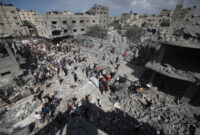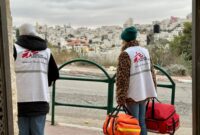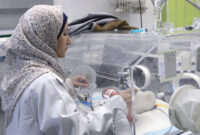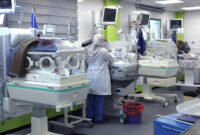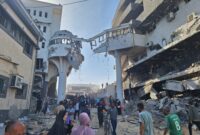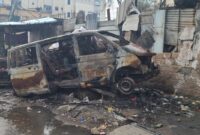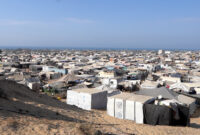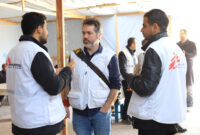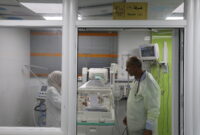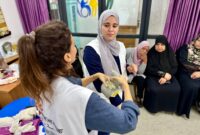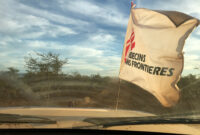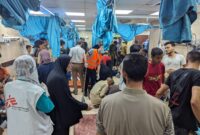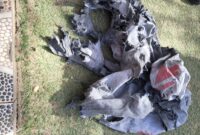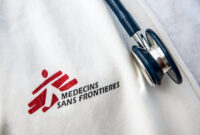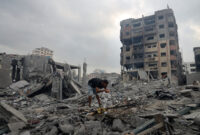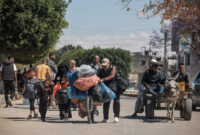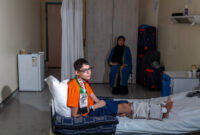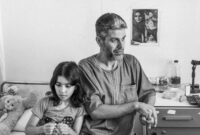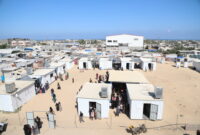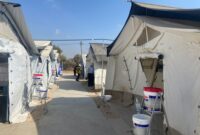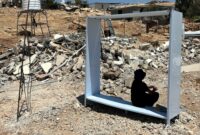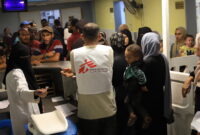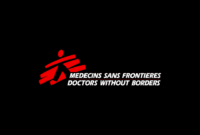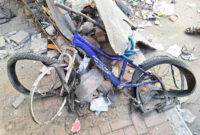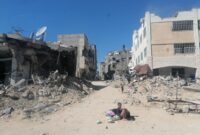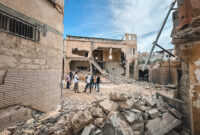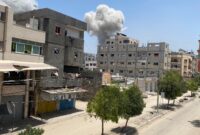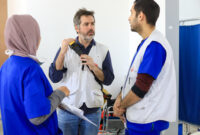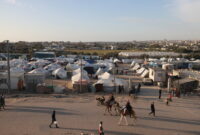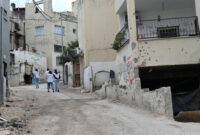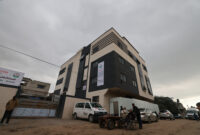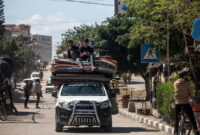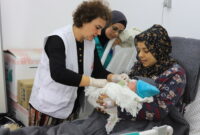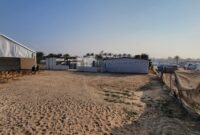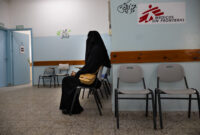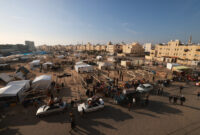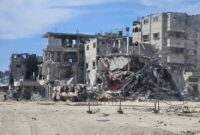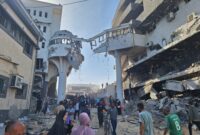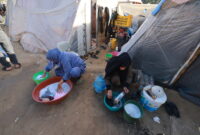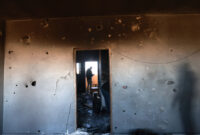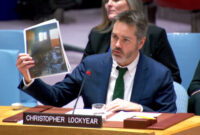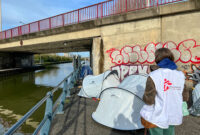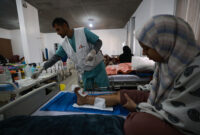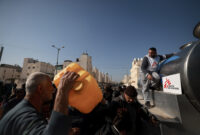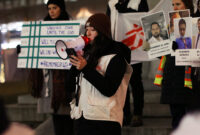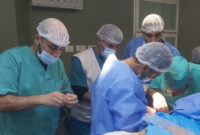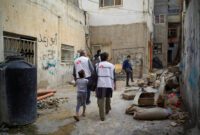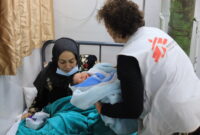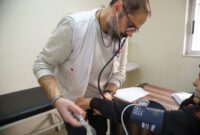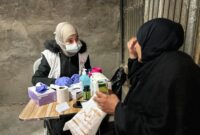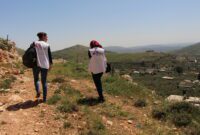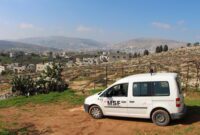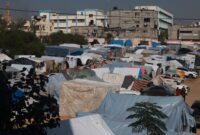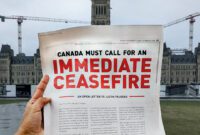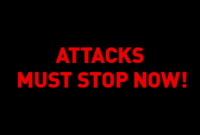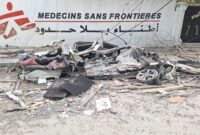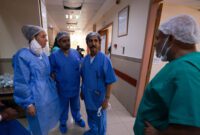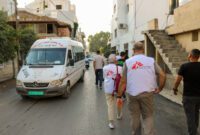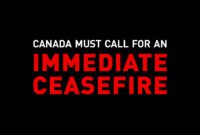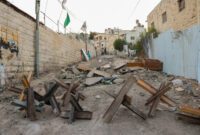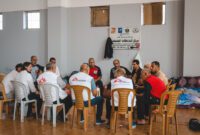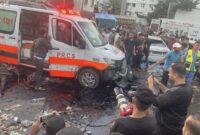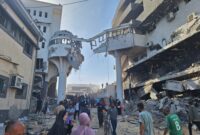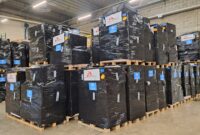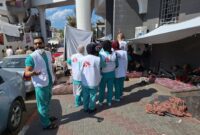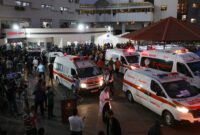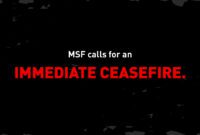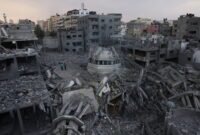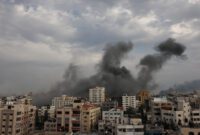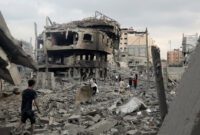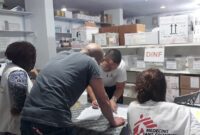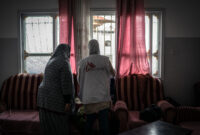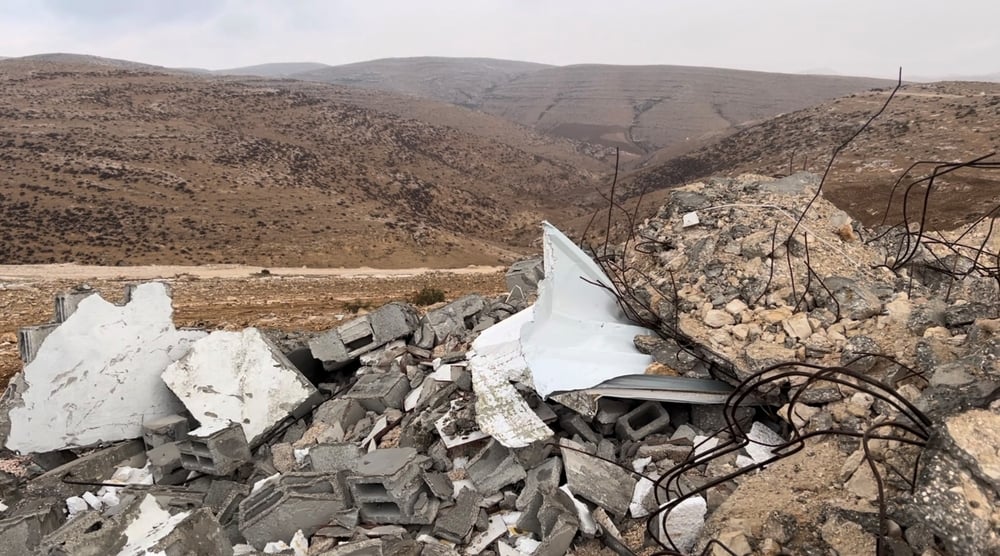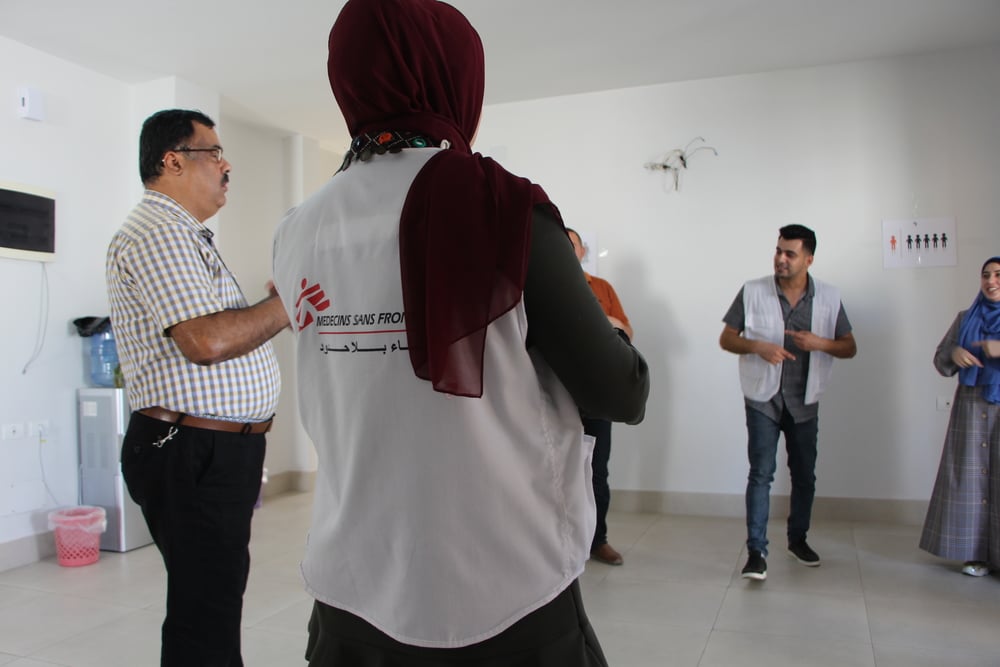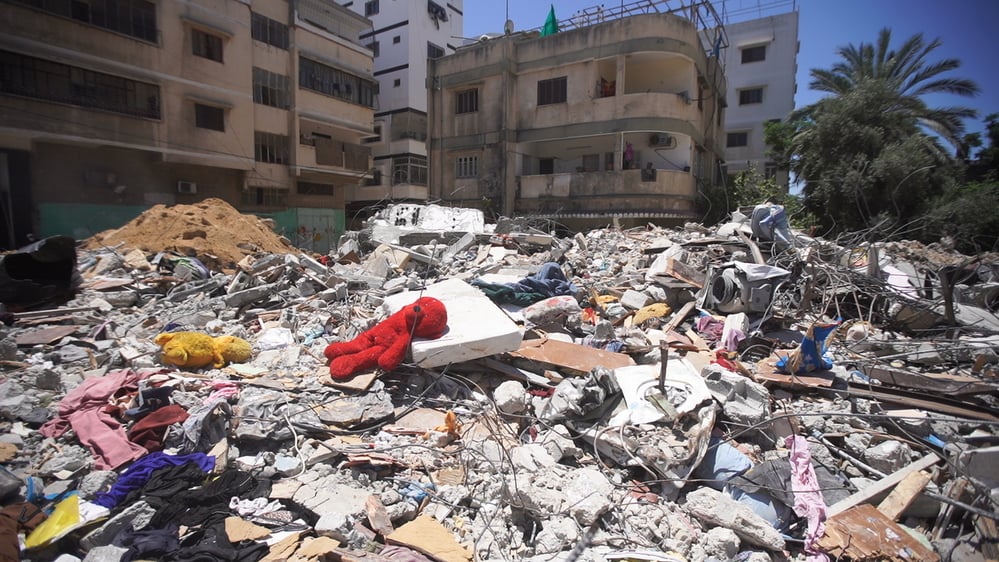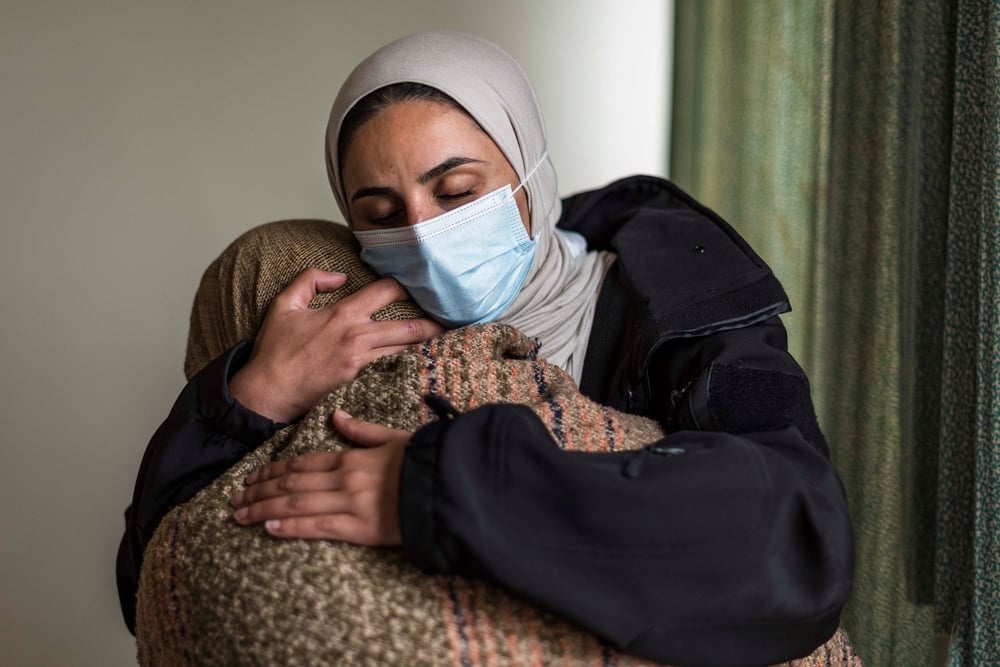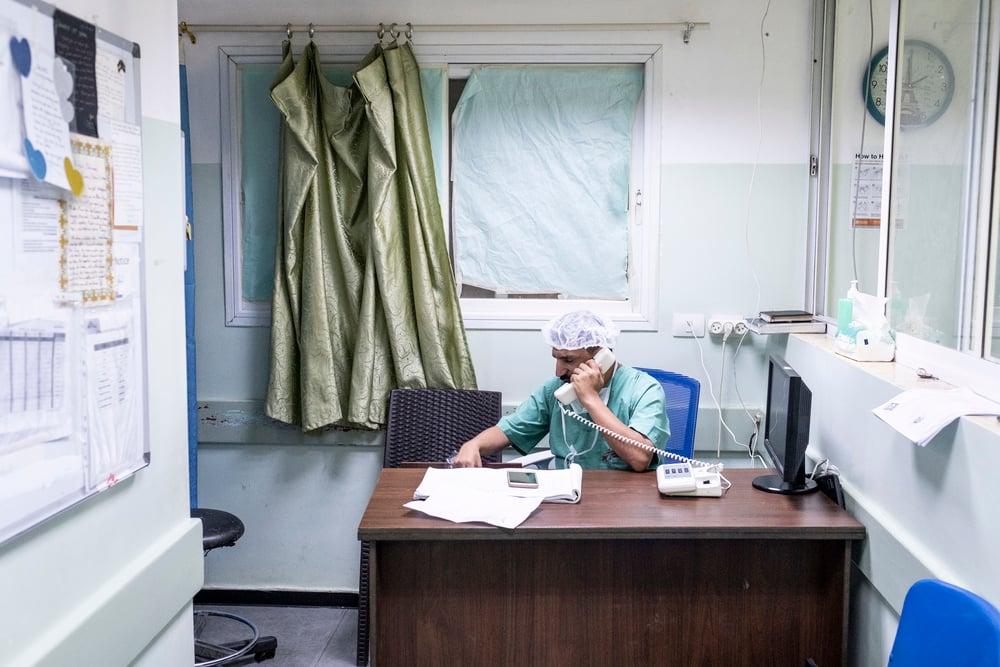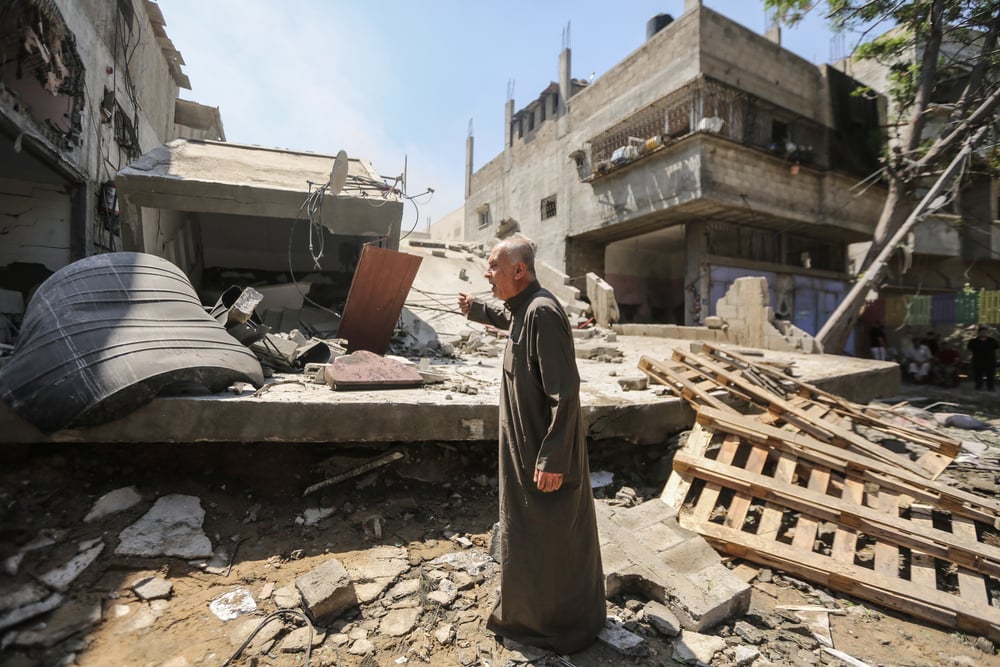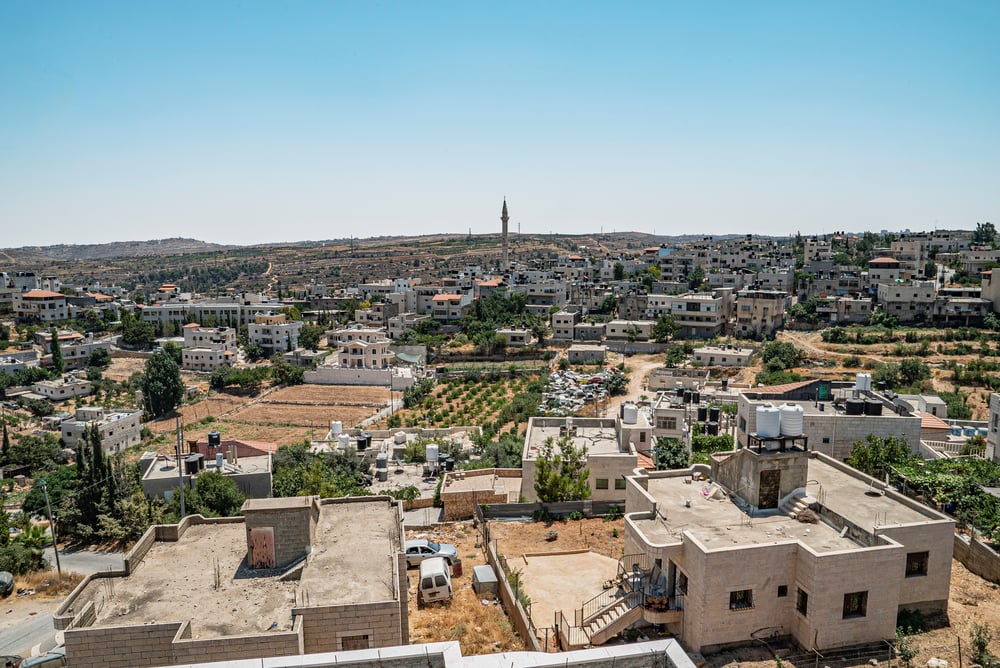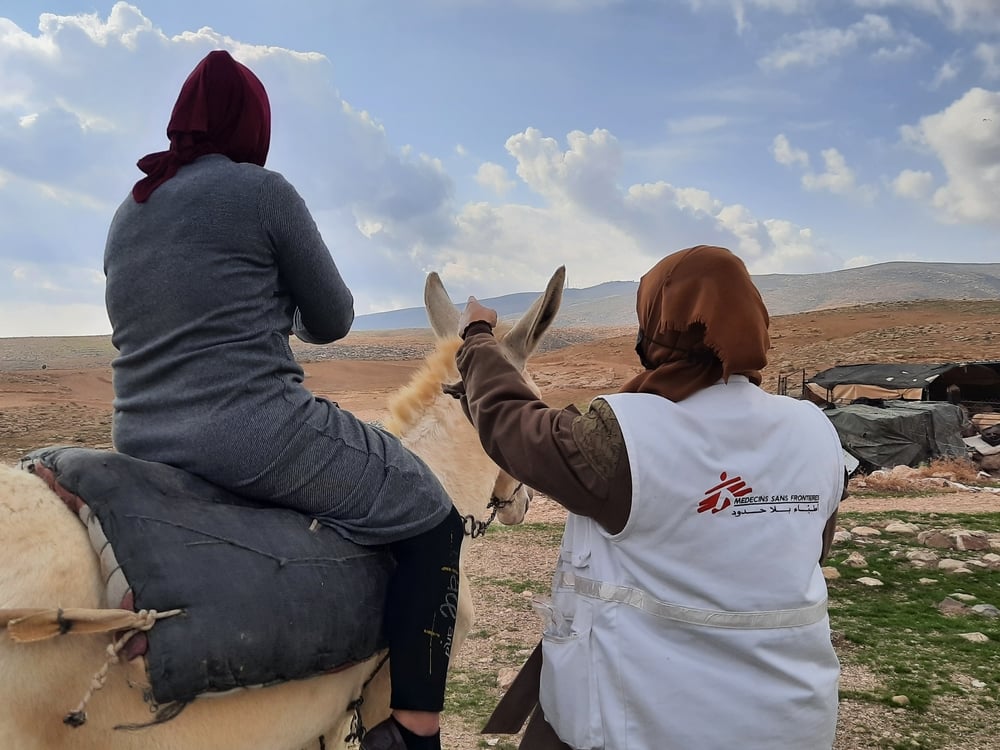Gaza: “The situation is catastrophic”
First-person account by Léo Cans, MSF country director, Palestine (based in Jerusalem)
“The situation in Gaza is catastrophic; the hospitals are overwhelmed. The number of wounded is extremely high – there is a constant influx into all the hospitals in the Gaza Strip. The medical teams are exhausted, working around the clock to treat the wounded.
The bombardments are very intense. Entire buildings are being destroyed, including one last night right next to the MSF office. Sometimes people receive a text message in the middle of the night telling them to evacuate their homes, as happened to some of our team members in Gaza. You have to wake up your children in the middle of the night and leave your house, without taking any of your belongings, to get to safety. But very often people don’t know where to go; they find themselves outside in the middle of the night, under a hail of bombs. Where can they find safety?
The latest estimates put the number of displaced people at around 200,000, mainly people who have received those SMS messages and whose homes have been destroyed. They need everything: water, a place to shower, food, a mattress to sleep on… in short, these are varied but basic needs.
Now the Israeli government has decided to completely cut off water and electricity supplies, and the phone network has been badly damaged. This morning, we were unable to reach our teams in Gaza by phone. Inevitably, this all makes it extremely difficult to coordinate rescue operations and access the injured.
In Gaza today, people are terrified. I speak very regularly with our colleagues there. They are very tough people because unfortunately they have lived through a lot of wars, but the current situation is causing them extreme anxiety. They say that this time it’s different: they don’t see a way out and they wonder how it’s all going to end. They are in terrible mental distress. There aren’t words to describe what people are going through.
As for MSF, we are very concerned to see that medical facilities have not been spared. One of the hospitals we support was hit by an airstrike and damaged. Another airstrike destroyed an ambulance carrying the wounded, right in front of the hospital where we work. The MSF team, who were operating on a patient, had to leave the hospital in a hurry. We repeat: medical facilities must be respected. This is not something that should have to be negotiated.
Currently MSF is donating essential medicines and medical equipment to the main hospitals in the Gaza Strip. We have also sent surgical teams to two hospitals to help treat the wounded. In the coming days, there will also be a lot of post-operative surgery to be carried out, as most of the wounded we receive will need several surgical interventions before they can be saved. Yesterday we also set up a clinic in downtown Gaza city for people with other injuries, which we will try to keep open if conditions allow.
Yesterday morning, we received a 13 year old boy whose body was almost completely burned after a bomb fell right next to his house, starting a fire. These are very complicated cases to treat in such conditions and, when children are involved, it’s very hard to bear.
The intensity of the violence and bombardments is shocking, as is the death toll. The declaration of war must not, under any circumstances, lead to collective punishment of the population of Gaza. Cutting off water, electricity and fuel supplies is unacceptable, as it punishes the entire population and deprives them of their basic needs. “
About MSF in Palestine
The information about our response, below, is correct as of Nov. 9, 2023.
MSF activities in Gaza are currently very limited. We have extreme difficulties delivering aid and providing healthcare due to the insecurity and the unpredictability of the bombardments. While some of our colleagues decided to move south following the unacceptable evacuation order of north Gaza, some of our other colleagues have remained in northern Gaza and continue to support in lifesaving activities in Al Shifa Hospital as well in Al Nasser hospital in the south. In Al Awda hospital, a team of seven MSF staff is also working in the MSF inpatient department.
We are also supporting local health authorities with donations from our medical stock. Due to the huge and uninterrupted influx of wounded people since the beginning of the current active conflict, Al Shifa Hospital, the main surgical facility in the Gaza strip, was on the brink of a complete shortage of essential medicines. In response, we recently were finally able to make a large donation of medical stock, including medicines and medical equipment to Al Shifa hospital.
Our staff are working hard on preparing medical and humanitarian supplies to be sent to Gaza when safe access will be guaranteed and open, and we’ll send in emergency teams if and when we’re able to.
MSF is committed to supporting the people affected by the Israeli heavy bombardments and indiscriminate attacks on Gaza. We stand in solidarity with healthcare workers and patients in Gaza. We want to be able to access people in need of medical care and offer lifesaving humanitarian services, but to do this we need basic guarantees of safety.
The West Bank
MSF’s medical and humanitarian activities in the West Bank have been affected by the escalation of violence and the reinforced movement restrictions that have limited people’s access to essential services, including healthcare. To adapt to the situation, MSF medical teams are providing phone consultations for Palestinian residents and displaced people, and referring patients for medical treatment, mental healthcare and social services. MSF mental health teams are also providing psychological first aid, counselling and psychotherapy, mostly remotely. In the West Bank city of Nablus, MSF teams are continuing to provide local people with mental healthcare.
MSF has donated medical supplies, including surgical kits, to Ahli hospital in Hebron, and first aid kits to community focal points in Beit Ummar, Al-Rashaydeh and to the emergency care centre in Um Al-Khair; and provided support including training for staff in Al Mohtaseb Hospital located in Hebron old city. MSF continues to assess the situation in hospitals across the West Bank.
